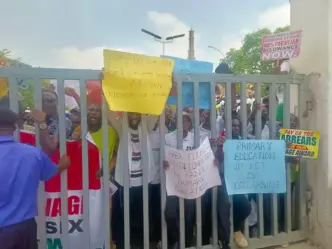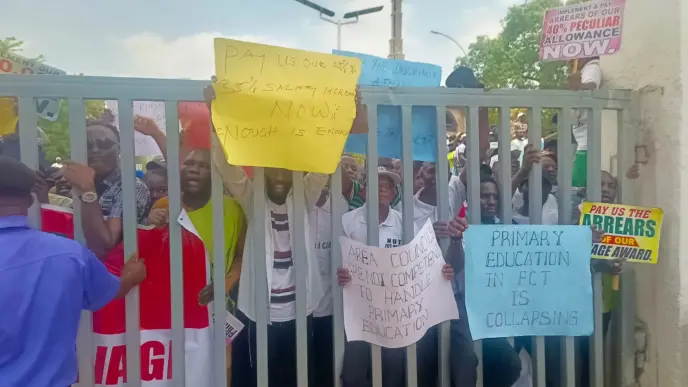President Bola Tinubu has granted a presidential pardon to Maryam Sanda, who was sentenced to death in 2020 for killing her husband, Bilyaminu Bello. Sanda, who had spent six years and eight months at the Suleja Medium Security Custodial Centre, is among 175 Nigerians and foreigners who received clemency.
The Special Adviser to the President on Information and Strategy, Bayo Onanuga, announced the development in a statement issued on Saturday. According to the Presidency, Sanda’s family appealed for her release on compassionate grounds, citing her good behaviour in custody, remorse, and her commitment to raising her two children.
The statement read: “Her family pleaded for her release, arguing that it was in the best interest of her two children. The plea was also anchored on her good conduct in jail, her remorse, and her embracement of a new lifestyle, demonstrating her commitment to being a model prisoner.”
Sanda’s release forms part of President Tinubu’s extensive use of the prerogative of mercy, which also covered posthumous pardons for late environmental activist Ken Saro-Wiwa, Major General Mamman Vatsa, and other members of the “Ogoni Nine.”
“This marked one of the most expansive uses of the presidential prerogative of mercy, touching on high-profile historical cases,” the statement added.
The Presidency explained that the decision followed recommendations by the Presidential Advisory Committee on the Prerogative of Mercy, chaired by the Attorney-General of the Federation and Minister of Justice, Lateef Fagbemi (SAN).

Maryam Sanda’s case gained national attention in January 2020 when Justice Yusuf Halilu of the Federal Capital Territory High Court in Abuja convicted her of fatally stabbing her husband and sentenced her to death by hanging.
In his ruling, Justice Halilu declared, “She should reap what she has sown, for it has been said that ‘thou shall not kill,’ and whoever kills in cold blood deserves death as his own reward.”
Sanda later appealed the judgment on 20 grounds, alleging errors in evidence evaluation and bias, but the Court of Appeal dismissed the appeal on December 3, 2020, upholding the death sentence.
Justice Stephen Adah, who delivered the lead judgment, affirmed that “the circumstances surrounding the death can be the best proof of what is being alleged.”
The police subsequently urged the Supreme Court to sustain the lower courts’ verdicts. Police counsel, James Idachaba, stated: “We are satisfied with the findings of the trial and appeals court, and we are prepared to defend the law’s position at the Supreme Court,” underscoring the commitment to justice.
The presidential pardon list, released on Saturday, is divided into six categories — pardoned individuals, posthumous pardons (including the Ogoni Nine), victims honoured, clemency beneficiaries, inmates recommended for reduced sentences, and death row inmates whose sentences were commuted to life imprisonment.
President Tinubu’s decision marks one of Nigeria’s most wide-ranging exercises of executive clemency, blending compassion, justice, and historical reconciliation.


 Trending
Trending 











